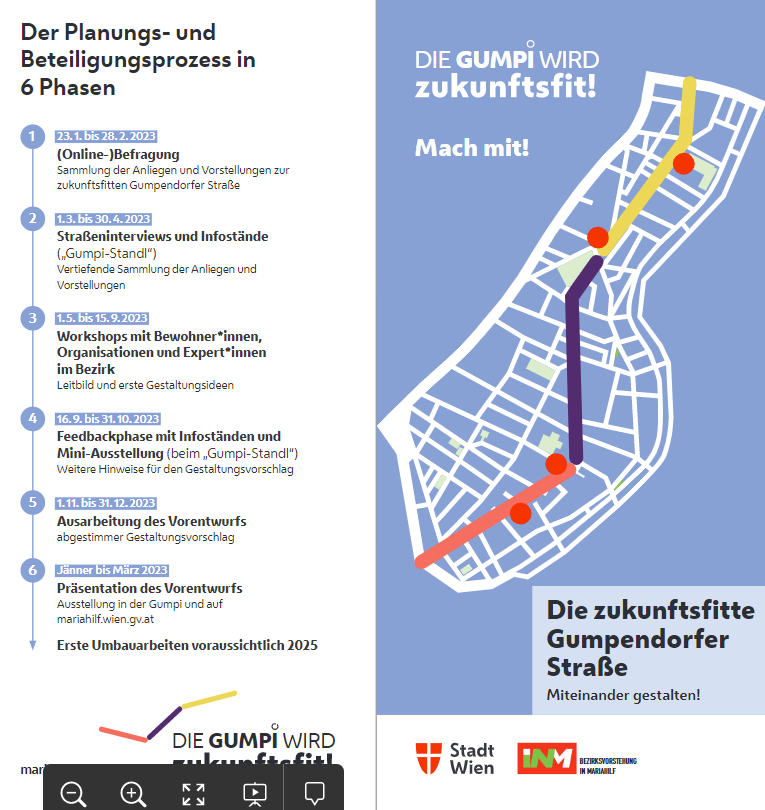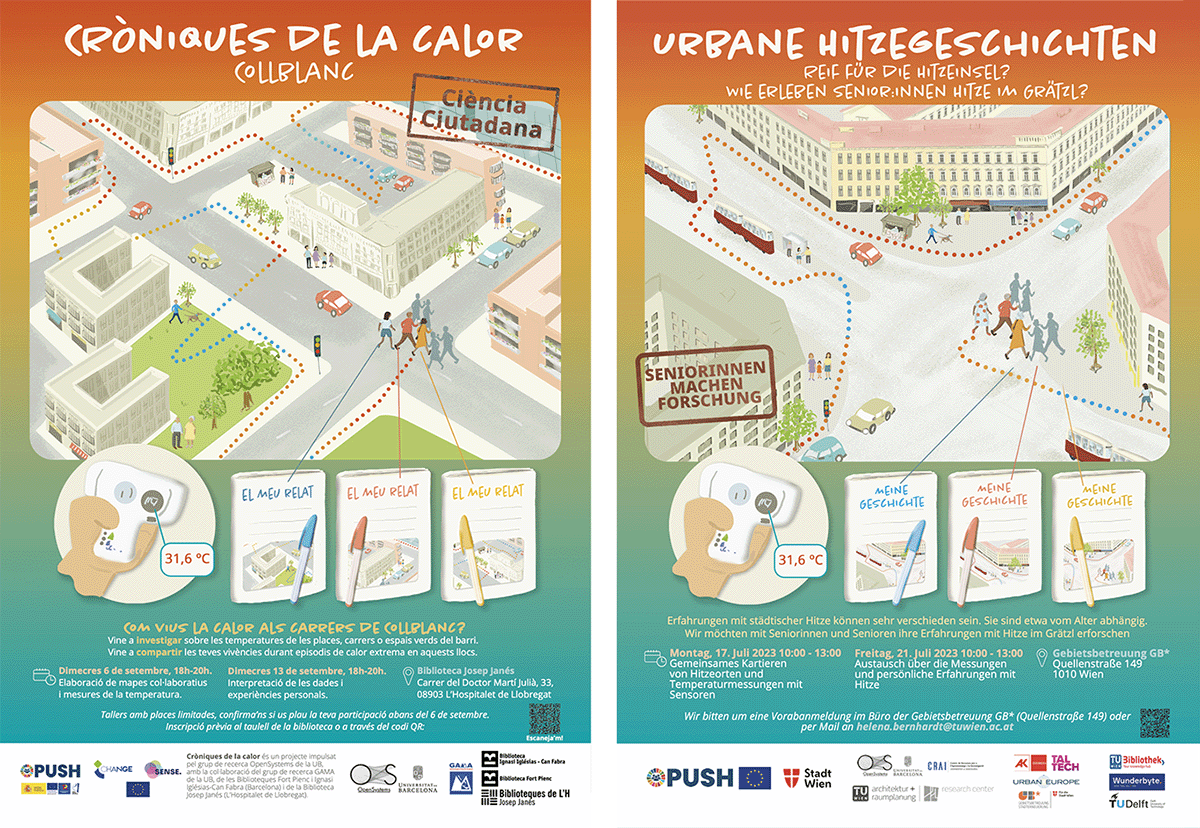
- Details
- Written by: Phoebus Panigyrakis
- Category: Uncategorised
- Hits: 1035
Viennas longest street, Gumpendorfer Straße, is being redesigned. The district is therefore conducting a qualitative participation process with the aim to ensure an open solution finding and decision-making process. A mix of approaches and methods, inlcuding outreach work on the street, is offered.
Two CS experiments of future.lab Research Center and TU Wien library will go along with the participation process focusing on the inclusion of marginalized groups.
Photo credits: SPÖ Mariahilf

- Details
- Written by: Phoebus Panigyrakis
- Category: Uncategorised
- Hits: 991
The OPUSH partners have joined forces to conceptualize citizen social science projects dealing with urban extreme heat and focusing on their perception the most affected neighbors. The Vienna-based partners (future.lab and the TU Wien Research Library) and the Barcelona-based partner (OpenSystems) closely worked together to establish a common approach that integrates their respective expertise in Urban Planning and Citizen Social Science.
The projects, called “Cròniques de la Calor” (Heat Chronicles) in Barcelona and “Urbane Hitzegeschichten” (Urbane Heat Stories) are based on the same conceptual framework and follow a similar communication line. In particular, the twin projects are based on the same public spaces’ categorization, used to perform a collective mapping process with the citizens involved. Similarly, the same sensors models (Meteotracker) will be used in both cities to measure heat at a microscale and based on the citizens’ inputs. OPUSH partners will keep on collaborating in order to compare the results obtained in both cities.
- Details
- Written by: Frank van der Hoeven
- Category: Uncategorised
- Hits: 1241
Taking today's expensive and bulky technology and making it cheaper and smaller, this "lab on a chip" promises a wealth of potential.
- Details
- Written by: Frank van der Hoeven
- Category: Uncategorised
- Hits: 1231
OPEN4CITIZENS works to reduce such gap. It involves citizens into a co-design process (hackathons), together with IT experts, public administrations, interest groups and start-up companies, in order to develop new services to improve urban quality and certain aspects of their everyday life. The aim of the project is to raise citizens’ awareness about the opportunity offered by open data and create a new culture of innovation in public services.
In each of the five pilot locations (Copenhagen, Karlstad, Rotterdam, Milano and Barcelona) the project will also create physical or virtual locations (OpenDataLab) that will become the reference point for all citizens and interest groups that want to propose innovative applications based on open data.
